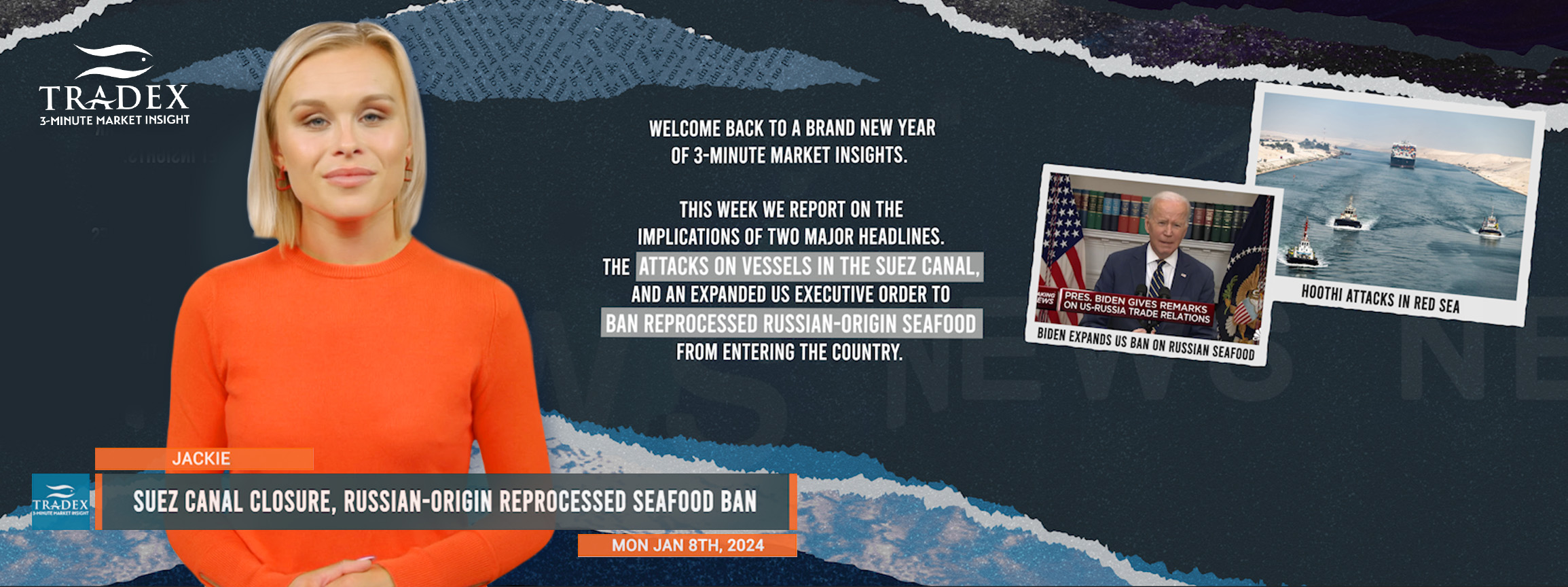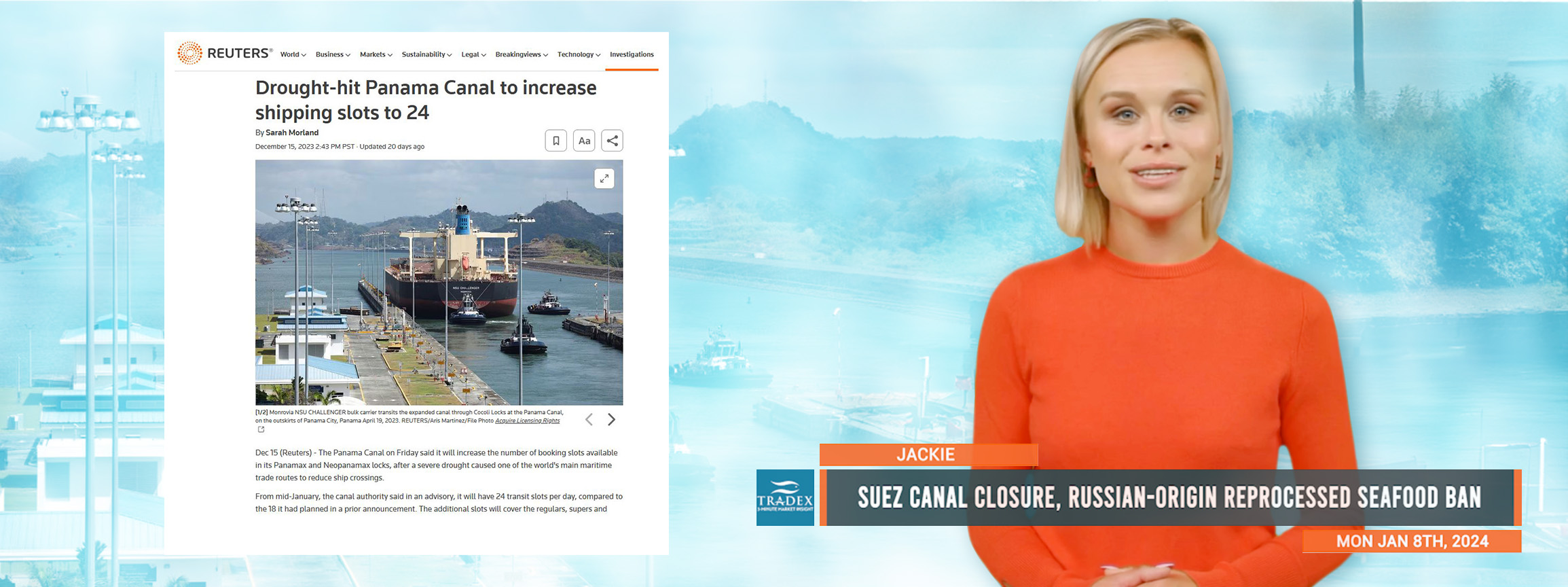
Loading
EP 672 | AIRED 01/08/2024
Market Impacts: Suez Canal Shipping Line Closure, Expansion of U.S. Ban on Russian-origin Reprocessed Seafood
Jan 8th, 2024 - Welcome back to a brand new year of 3-Minute Market Insights. This week we report on the implications of two major headlines. The attacks on vessels in the Suez Canal, and an expanded US Executive Order to ban reprocessed Russian-origin seafood from entering the country.
One of the world’s top trading routes, the Suez Canal is essentially closed for business now to many shipping companies because Houthi militia in Yemen have been attacking ships in response to Israel’s war in Gaza.
About 30 percent of all container traffic flows through the Suez, but now the world’s largest shipping lines such as Maersk and MSC are detouring thousands of miles and going around the Cape of Good Hope at Africa’s southern tip.
Shipping lines industry experts cite that this will result in a 20 percent decrease in supply of shipping capacity. This is because in order to service longer routes with the same frequency, more ships would be required.
The commerce implications of this will be higher freight cost, and 20 to 40 percent longer transit times. This mostly affects shipments between the EU and Asia, but also between Asia and the U.S. East Coast as well. Cost of Asia to Europe trade lanes are already up about 3x vs a few months ago, and our China office is anticipating freight to further increase after Chinese New Year.

Shipping line experts do not believe there is a short term solution in restoring this route. Even with enough military support, any sort of vessel insurance policy may be void sailing through a war zone.
On the other side, the Panama Canal is having its own set of problems, due to drought, resulting in a decrease in the number of vessels going through.
Now moving onto the new US-Russia sanctions.
U.S. President Joe Biden signed an Executive Order Friday December 22 that expands on the previous order that banned seafood imports from Russia. The new order now bans Russian-origin seafood that is reprocessed in other countries such as China from entering the U.S.

Advertise Here: advertising@tradexfoods.com
The new determination states that the current prohibition on Russian imports applies to Salmon, Pollock, Cod and Crab products.
The order went into effect immediately and US importers have through February 21, 2024 to import Russian-origin products already in the works.
Russia is a major raw materials supplier of Pollock, Salmon, and Cod and so after February 21st, the U.S. will no longer have access to Russian supply of these major categories.

The commerce implications of this will be that prices on U.S. origin Pollock and Cod raw materials will go up a lot after Chinese New Year, resulting in seafood pricing in the US to follow suit.
Russian-origin raw materials are predicted to see prices fall, especially for Russian Pollock, some plants are speculating it may drop to under $1,000 per metric tonne by February.
It could be estimated that about 60 million pounds of Russian caught Pollock will need to find another market - that is not the USA.
Our recommendation is to secure your supply now, as imminent price increases are expected due to a more limited availability of Pollock and Cod and rising freight costs.
--- If you are not already, be sure to subscribe to our Weekly Seafood News Update using the signup form below.


